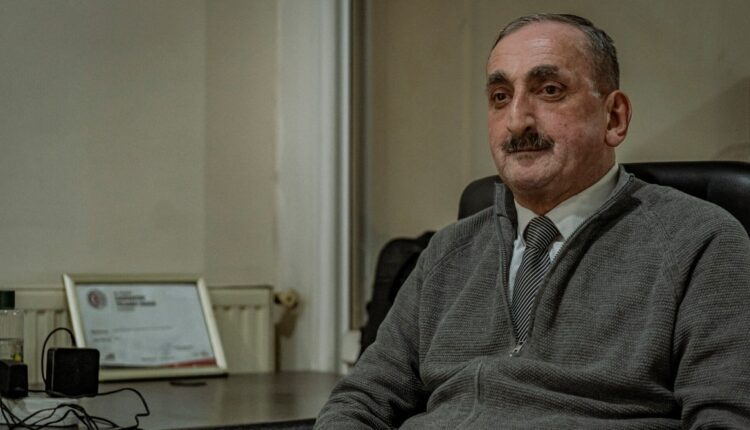
Reporting from Gaziantep
“We just need a safe space where to publish our news,” says Osama Aghi, founder of Ninar Press, an online weekly that covers political news about Syria and is based in Gaziantep. “It’s important to give an opportunity to Syrian journalists to find a [physical] space where to freely report and publish their stories.”
Situated in southeastern Turkey, less than 150 kilometers from Aleppo — one of the cities most impacted by the Syrian conflict — Gaziantep was near the epicenter of the Feb. 6 earthquake that killed more than 50,000 people in Turkey. The earthquake has tested an already unstable situation for journalists, some of whom have been detained for reporting on the aftermath of the tragedy. From his little table at Kafka, al-Hasan confesses his worries.
“Lately, I feel that even in Gaziantep it’s becoming harder to be a Syrian reporter,” he says. “I feel there still are some boundaries and I cannot deliver the full story or do investigations on our conditions in the country.” Most stories about deportation threats and Syrian child labor exploitation are reported by foreign journalists and outlets, or by Syrian journalists working as staff for them and who can benefit from Western protection. It’s also risky for them to cover Turkish politics, as was the case over the past few months as the country geared up for its presidential election.
But still, the Syrian newsrooms that were forced to close their offices for a few weeks after the earthquake kept operating with their staff working from home or from the few open cafes amid the rubble, similar to the times many Syrian journalists worked under shelling during the war.
Gaziantep has always carried a dual identity. It used to be part of the Ottoman Empire, and today — particularly after a decade of conflict and refugee crisis — bilingual street signs, shops with both Turkish and Arabic products, and Syrian and Turkish restaurants standing next to each other fill the narrow streets that are reminiscent of the old Aleppo city. Today half a million Syrians live here, and since the beginning of the Syrian crisis, the city has become a major humanitarian aid hub as well as a flourishing place for intellectuals, writers, and activists.
In Gaziantep, despite the challenges, Syrian exiles have a wide variety of media to choose from across radio, television, print, and digital, including even a magazine for children. This is what pushed Aghi — a writer and activist who spent nearly a decade in regime prison between the 1980s and early 90s for opposing the government — to launch Ninar in 2020.
“In Syria there was no free press before 2011,” explains the 69-year-old Aghi. “We were not allowed to publish anything even slightly controversial.” In the last three years Ninar has covered human rights, feminism, and local Syrian politics. “We noticed there was especially a lack of gender-related stories, so we decided to focus much of our reporting on that,” Aghi says. That helped many of their female readers to better understand their rights, he adds.
Today Ninar has a staff of six, plus a dozen freelancers, many of whom are in Syria, mainly in the northern areas where it’s still safer to report. In Damascus, he says, it’s too risky to keep correspondents. The Gaziantep newsroom, located in the quiet, residential area of Gazimuhtar Pasa, is a simple two-room space with just a few desks and chairs, and a tray always full of Syrian biscuits and freshly-made coffee.
“This was the best possible place to create something like this, because it’s like a new Syria, the one we hoped to create back home, but couldn’t,” says Aghi, who fled his home country after the Assad regime and armed groups began threatening his life because of his reporting on ISIS.
For those still operating in Syria, using fake names to protect identities is a common practice. Aghi says he receives reports from Syria from reporters whose identity he knows but publishes the stories using fake names to protect their identities. When paying contributors, he uses cash so that authorities are not able to trace the money back to Ninar. Although the website has reached so far just a few thousand readers each day, both from Syria and abroad, he says he’s happy with how far they’ve come.
